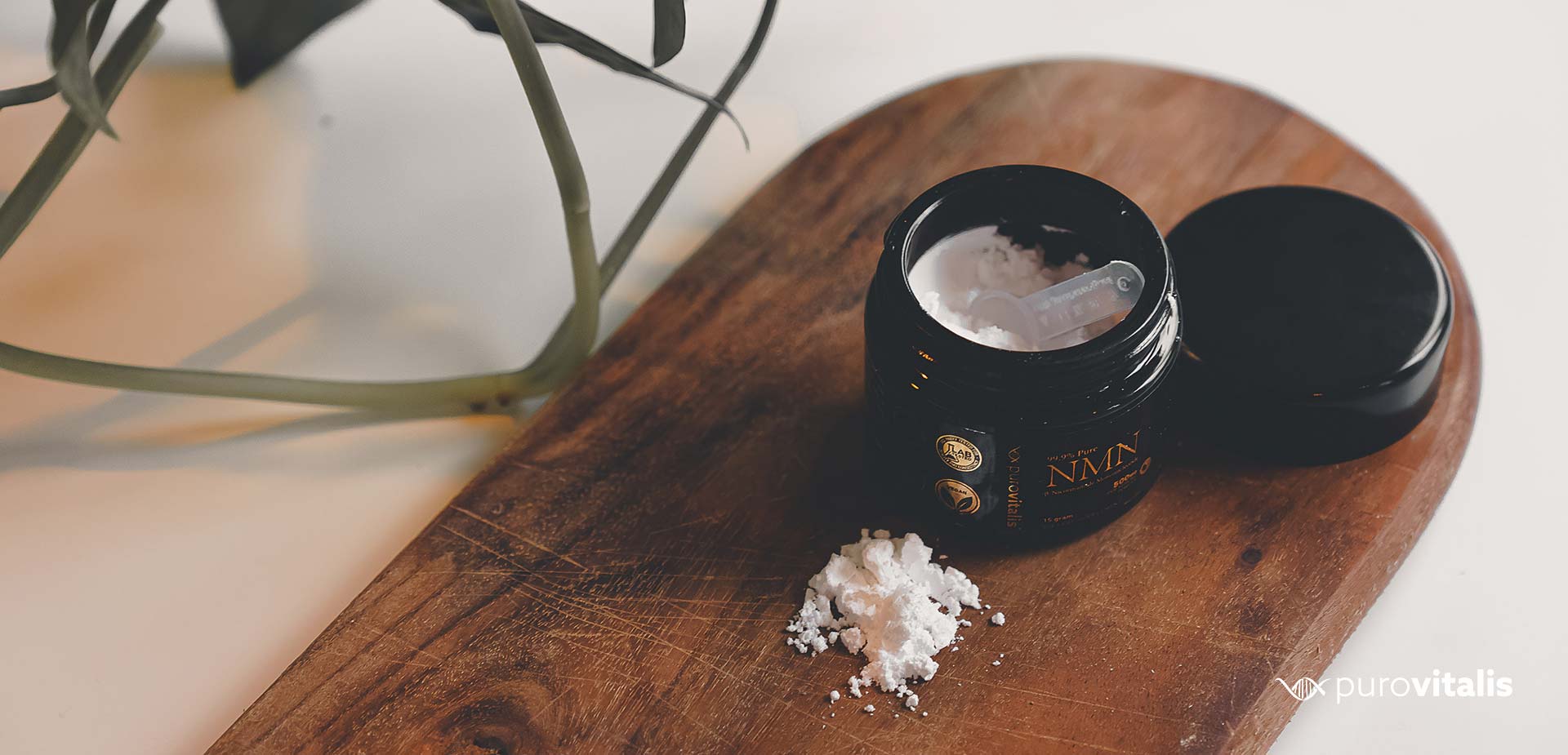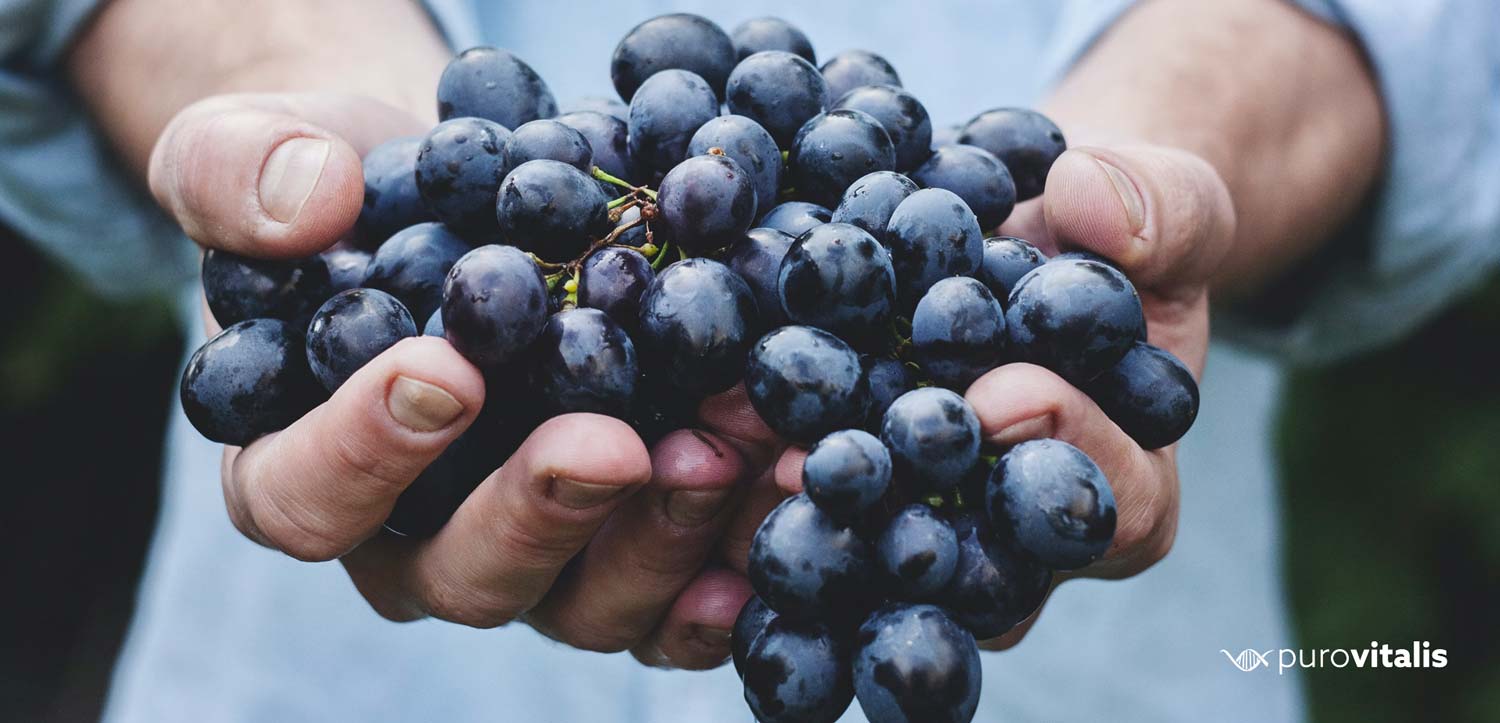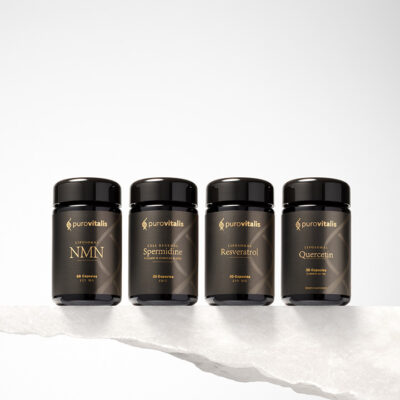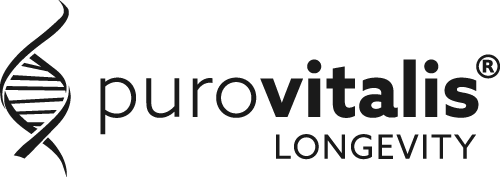
Veroudering is een proces dat de meeste mensen graag zouden willen vertragen. Maar hoewel veroudering onvermijdelijk is, is het verlengen van de levensduur en het vertragen van het verouderingsproces al heel lang het middelpunt van wetenschappelijk onderzoek. Wat er gebeurt is dat ontstekingen op een laag niveau oxidatieve stress in het lichaam veroorzaken, wat leidt tot veel chronische aandoeningen. De meest effectieve anti-verouderingsvitaminen en -supplementen gaan de schade tegen die door deze oxidatieve stress wordt veroorzaakt.
De lijst met antiverouderingsvitaminen:
Hoewel wetenschappers veel stoffen met antiverouderingseigenschappen hebben geïdentificeerd, volgt hier een uitputtende lijst van vitamines die als supplement kunnen worden ingenomen en die het verouderingsproces kunnen helpen vertragen en ouderdomsziekten kunnen helpen voorkomen.
Vitamine C
Vitamine C is een vertrouwde bron om het immuunsysteem te stimuleren door nieuwe cellen aan te maken. In de huid beschermt het doseren van Vitamine C tegen oxidatieve stress. Als je Vitamine C niet megadoseert, beschermt de vitamine zelfs tegen vroegtijdige veroudering. Dat maakt het een krachtige antioxidant.
Vitamine C kan ook worden gebruikt als een oplichter om "levervlekken" en donkere vlekken rond de ogen aan te pakken, wat ook tekenen van veroudering zijn. Vitamine C kan worden gevonden in voedsel of worden ingenomen in de vorm van supplementen, maar de dagelijks aanbevolen hoeveelheid voor een volwassene is 2.000 mg. Voor tieners is dat 1.800 mg en voor kinderen tussen de 400 en 1.200 mg per dag.
De consumptie van buitensporige hoeveelheden, ook wel bekend als megadosering van Vitamine C. Studies hebben aangetoond dat de opname van vitamine C afneemt tot minder dan 50% bij inname van hoeveelheden van meer dan 1000 mg. Het kan bijwerkingen veroorzaken, inclusief maar niet beperkt tot overgeven, hoofdpijn, brandend maagzuur, slapeloosheid, misselijkheid en diarree. In sommige gevallen overbelast het mensen met hemochromatose, een erfelijke aandoening die overmatig ijzer in het bloed veroorzaakt. Hoewel Vitamine C een essentiële voedingsstof is, wordt megadosering van Vitamine C nooit aanbevolen.

Vitamine D
Een van de populairdere anti-verouderingsvitamines staat bekend als een cruciale vitamine voor sporters. Een tekort aan vitamine D is een directe oorzaak van veroudering, zoals cognitieve achteruitgang, depressie, osteoporose, hart- en vaatziekten, hoge bloeddruk, diabetes type 2 en kanker. Daarom is het cruciaal om te zorgen voor een adequate inname ervan.
Vitamine D is niet alleen een belangrijke vitamine om veroudering tegen te gaan, maar helpt vooral de gezondheid van de botten te verbeteren en calcium aan te vullen. Het vergroot ook de spiermassa en -kracht, het aantal spiervezels dat wordt gebruikt voor korte uitbarstingen van snelheid en kracht, reguleert het immuunsysteem en beschermt het tegen bepaalde ziekten. Vitamine D speelt zelfs een cruciale rol bij de ontwikkeling van de hersenen en cognitieve prestaties, waarbij verschillende vitamine D-receptoren zijn geïdentificeerd in hersengebieden die cognitie en stemming beïnvloeden.
Een manier om je Vitamine D-niveaus bij te houden is door je bloedwaarden te controleren met een Vitamine D-test. Aangezien de aanbevolen dagelijkse hoeveelheid 600 IE is, wordt elke dosis daaronder een Vitamine D-tekort genoemd.

Vitamine E
Net als Vitamine D & K is Vitamine E een vetoplosbare vitamine. Vitamine E is een andere belangrijke antioxidant omdat het de celmembranen beschermt en schade aan de bijbehorende enzymen voorkomt. Vitamine E beschermt tegen verknoping van collageen en stopt de oxidatie van lipiden die verband houden met veroudering en de huid, waardoor anti-aging wordt bevorderd. Het is essentieel voor de behandeling van rimpels, pigmentvlekken en de elasticiteit van de huid. Maar omdat Vitamine E in het lichaam toxische niveaus kan bereiken als het niet wordt gecontroleerd, moeten deze vetoplosbare vitamines nauwlettend in de gaten worden gehouden. Plantaardige oliën zoals zonnebloemolie, granen, haver, noten en zuivelproducten zijn enkele natuurlijke bronnen van vitamine E.

NMN (Nicotinamide Mononucleotide)
NAD+ of nicotinamide adenine dinucleotide is een stof die in elke cel in je lichaam voorkomt. Het is betrokken bij veel cruciale processen, waaronder energiemetabolisme, DNA-herstel en genexpressie. De voorlopers van (NAD+) zijn nicotinamide riboside (NR) en nicotinamide mononucleotide (NMN). NAD+ niveaus dalen met de leeftijd, wat geassocieerd wordt met een versnelde lichamelijke achteruitgang. NMN kan echter rechtstreeks aan cellen worden toegevoegd zonder te worden omgezet in NAD.
Als je ervoor kiest om NMN en NAD aan te vullen, kun je de celstofwisseling directer bevorderen. Het is een snellere manier om veroudering tegen te gaan. Daarnaast verbetert nicotinamide mononucleotide ook de insulineactiviteit en -productie, wat resulteert in extra metabolische voordelen. In het bijzonder kunnen NMN supplementen helpen bij het verlichten van metabolische aandoeningen zoals diabetes, leveraandoeningen, obesitas en het verlengen van onze levensduur.
Resveratrol
Resveratrol is een polyfenol in druiven, bessen en pinda's en staat bekend als de "rode wijn" chemische stof. Sirtuïnes zijn eiwitten die cellen gezond houden, en het Sirt1 (sirtuin1) gen regelt de cel longevity. Resveratrol activeert deze specifieke genen, sirtuïnes genaamd, die in wetenschappelijke studies de levensduur van fruitvliegen en gisten hebben verlengd .
Met zijn gunstige effecten van calorierestrictie helpt resveratrol diabetes en hartaandoeningen te voorkomen door een langere levensduur van cellen te bevorderen. De meeste resveratrolsupplementen zijn afkomstig van polygonum cuspidatum, een reuzenknoop die voornamelijk in China en Japan wordt gekweekt, dus de aanbevolen dosis voor consumptie ligt tussen 100 mg en 1 gram per dag.

Quercetine
De meest voorkomende flavonoïde in de voeding, Quercetine, komt expliciet voor in appels, uien, broccoli en citrusvruchten, tomaten, broccoli en asperges. Het wordt in verband gebracht met anti-verouderingseigenschappen en verlaagt hoge bloeddruk en cholesterol.
Quercetine helpt de werking van vrije radicalen en celveroudering te verminderen . Deze unieke flavonoïde werkt als een echte natuurlijke anti-age, met name in de strijd tegen vroegtijdige huidveroudering, waaronder het verschijnen van rimpels, vlekken en verslapping.
Het staat bekend om zijn ontstekingsremmende en immuunbeschermende werking en helpt de schade van zonnestraling op de huid te verminderen. Dat is een van de eerste oorzaken van het verschijnen van vlekken, tekenen en rimpels.
Fisetin
Fisetin, een flavonoïde die in verschillende vruchten en groenten voorkomt, waaronder aardbeien, appels, druiven en uien, is de krachtigste senolytische verbinding. Senolytica bevorderen veroudering en Fisetin, een plantenextract, is er een uitstekende bron van.
Fisetin kan degeneratieve verouderingsprocessen tientallen jaren vertragen met zijn eigen unieke biologische eigenschappen. Het helpt zelfs beschermen tegen kanker, diabetes type II en obesitas en in onderzoek bij mensen om de resultaten bij slachtoffers van een beroerte te verbeteren. Door kwaadaardige veranderingen in cellen te helpen voorkomen, ruimt Fisetin disfunctionele senescente cellen op en laat gezonde cellen gedijen.
Hyaluronzuur
Hyaluronzuur, een krachtige vochtinbrenger, staat erom bekend dat het je huid stralend en gehydrateerd houdt. In onze jeugd houdt onze huid water vast en brengt het vocht in balans. Naarmate we ouder worden, verliezen we dit vermogen. Dit resulteert in een zichtbaar verlies van stevigheid, plooibaarheid en een minder vol en soepel uiterlijk.
Hyaluronzuur heeft ook krachtige anti-aging eigenschappen. Het wordt gebruikt als een natuurlijk alternatief voor synthetische fillers. De vochtbindende eigenschap van hyaluronzuur is belangrijk voor huidveroudering. Het is een natuurlijk ingrediënt dat door het lichaam wordt geproduceerd en overal in het lichaam te vinden is. Het is ook een enorm effectieve antioxidant door de vrije radicalen in de huidcellen te beheren en ze te beschermen tegen schade.
Lees hier onze blog over hyaluronzuur: Hyaluronzuur - Wat zijn de voordelen en waarvoor wordt het gebruikt?
Curcumine
Van dit element is nu bekend dat het krachtige antiverouderingseigenschappen bezit. Zijn krachtige antioxidantpotentieel helpt celveroudering te vertragen en bevordert longevity. Het is overvloedig aanwezig in kurkuma, een oude Indiase specerij die curry zijn gele kleur geeft. Door curcuminesupplementen te nemen en kurkuma op te nemen in voedselrecepten kun je de inname van curcumine verhogen. Door dagelijks supplementen van 1 gram met een hoog gehalte aan curcumine in te nemen, kun je ook afscheid nemen van artritis en botverlies.
Stralend en gezond
Elke vitamine is een goede vitamine als je je er goed, gezond en energiek door voelt. Een goede test is om je energieniveaus over een periode van 3-6 maanden te controleren. Curcumine, Vitamine C, Vitamine D, nicotinamide mononucleotide en resveratrol zijn slechts enkele van de supplementen waarvan is aangetoond dat ze anti-verouderingseffecten hebben en het verouderingsproces helpen vertragen. Het is echter altijd belangrijk om te begrijpen dat, hoewel het helpen met supplementen kan helpen, de beste manier om longevity te ondersteunen een voedzaam dieet, regelmatige lichaamsbeweging en het verminderen van stress is.
Referenties:
Sirtuïnes, een veelbelovend doelwit in het vertragen van het verouderingsproces.
De rol van Curcumine in de modulatie van veroudering.
Fisetin is een senotherapeuticum dat de gezondheid en levensduur verlengt.
Effect van resveratrol en pterostilbeen op veroudering en longevity.
Vitamine D, zonlicht en longevity.
Vitamine E-suppletie en levensduur in modelorganismen.
Vitamine C als antioxidant: evaluatie van de rol ervan bij ziektepreventie.

Volg 50+ gezondheidsmetingen met AI-gestuurde nauwkeurigheid. Start vandaag nog je gratis proefperiode en neem de controle over je welzijnsreis!

hoogwaardige supplementen Liposomale technologie Gemaakt in de EU Door derde partijen getest
Ervaar het leven ten volle met de supplementen van Purovitalis!












